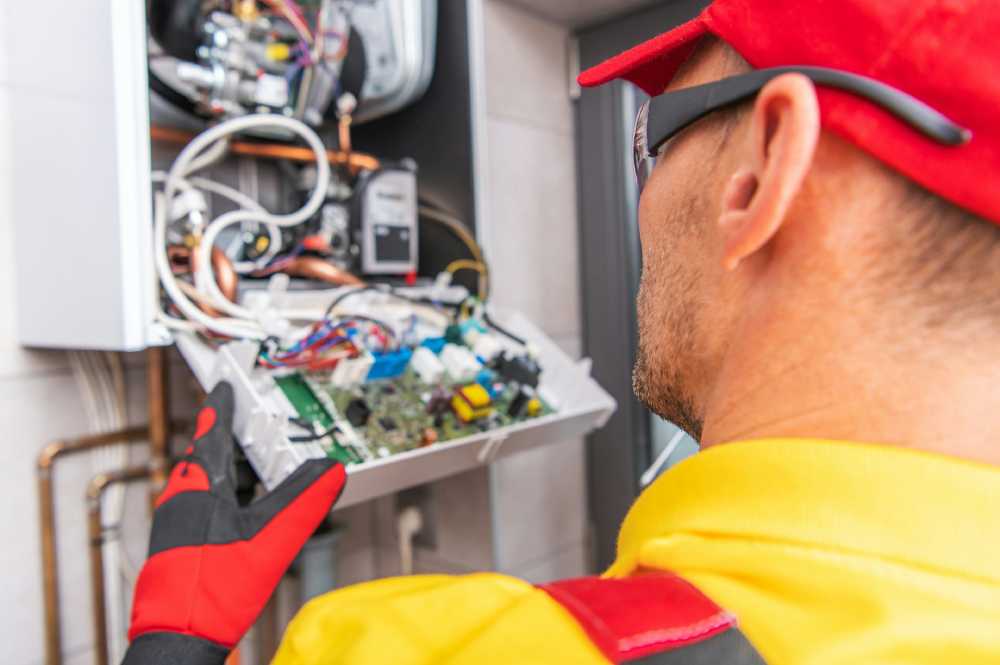The Evolution of HVAC Technology and Its Impact on Energy Efficiency
The history of modern HVAC systems is a narrative of constant innovation and improvement. The earliest forms were neither efficient nor environmentally friendly.
However, they set the stage for the transformative advancements that followed. These systems have evolved from bulky, energy-intensive machines to compact, high-performance units. Both technological progress and a growing awareness of environmental issues have driven the advancements.
Consumers today benefit from this progression, with options available that are more energy-efficient and better for the environment. The evolution from coal-burning furnaces to electric and even solar-powered units illustrates this shift.
The Role of Maintenance in HVAC Efficiency
Maintenance is crucial to ensuring the optimal performance and energy efficiency of HVAC systems. HVAC company can prevent the gradual decline in system efficiency caused by wear and tear. Optimal functionality can be maintained by addressing minor issues, such as cleaning filters or making minor repairs before they become significant.
Educating customers on the significance of maintenance activities such as seasonal inspections or cleaning ductwork is essential. This helps to conserve energy efficiency and extend the lifespan of HVAC equipment. In conclusion, preventative maintenance is a wise investment that pays off in terms of efficiency and reliability.
Choosing the Right HVAC System for Your Needs
Selecting the appropriate HVAC system is a complex decision requiring a comprehensive assessment of individual needs and property specifications. Factors such as the size of the space, local climate, and architectural features all play a significant role.
Picking the correct system ensures the unit isn’t overworked or inefficient. HVAC services can provide invaluable guidance to navigate these factors and help you choose a system focusing on energy efficiency and long-term cost-effectiveness. Correctly choosing and installing an HVAC system can significantly enhance a space’s comfort while minimizing environmental impact.
Innovative Technologies Redefining HVAC
As the industry marches, ground-breaking technologies continue redefining what’s possible for HVAC systems. Smart thermostats have made significant inroads, providing users with unparalleled control over their home’s climate, with adjustments that can be completed remotely via a smartphone or tablet. These devices learn user preferences and adjust accordingly, leading to optimized energy usage without sacrificing comfort.
Geothermal heat pumps stand out for their extraordinary efficiency and low operating costs. These systems offer a clean and sustainable alternative for heating and cooling by utilizing the consistent temperatures below the Earth’s surface.
Moreover, advancements in solar technology have allowed for the integration of solar power with HVAC systems. This innovation takes a giant leap forward in reducing reliance on traditional energy sources.
Integrating HVAC Systems with Renewable Energy Sources
Incorporating renewable energy into HVAC operations offers a promising avenue toward superior energy efficiency. Such integration can range from connecting HVAC units with solar panel setups to utilizing wind energy to supplement energy needs.
These renewable energy sources can significantly reduce dependence on electricity, lower carbon emissions, and even result in considerable financial savings over time. The fusion of HVAC technology and green energy is gaining traction among consumers who are determined to foster sustainable living environments.
Financial Incentives and Rebates for Energy-Efficient HVAC Upgrades
The initial cost is a significant hurdle for many individuals when considering upgrading to a more energy-efficient HVAC system.
Governments and other organizations have recognized this barrier and responded with various financial incentives, such as tax credits or rebates, which make it easier for consumers to make the change. These financial aids help mitigate upfront expenses and incentivize users to invest in more sustainable options.
Across the long run, the energy savings from an efficient HVAC system also contribute to overall cost reductions, making this investment one of both economic and environmental returns. Keeping abreast of current incentive programs can make upgrading more financially palatable.
Future Directions in HVAC Technology
Looking forward, the HVAC industry is poised for a surge of innovation, primarily fueled by the push for sustainability and intelligent automation. The emergence of IoT-enabled HVAC systems is set to revolutionize how we manage indoor climates. These systems can learn from user behaviors, make energy-saving adjustments, and anticipate maintenance needs.
Beyond that, ongoing advancements in material sciences and renewable energy integration promise to further enhance the energy efficiency of HVAC systems. These developments bode well for an industry at the cutting edge of ecological stewardship and consumers eager to embrace a greener lifestyle.

